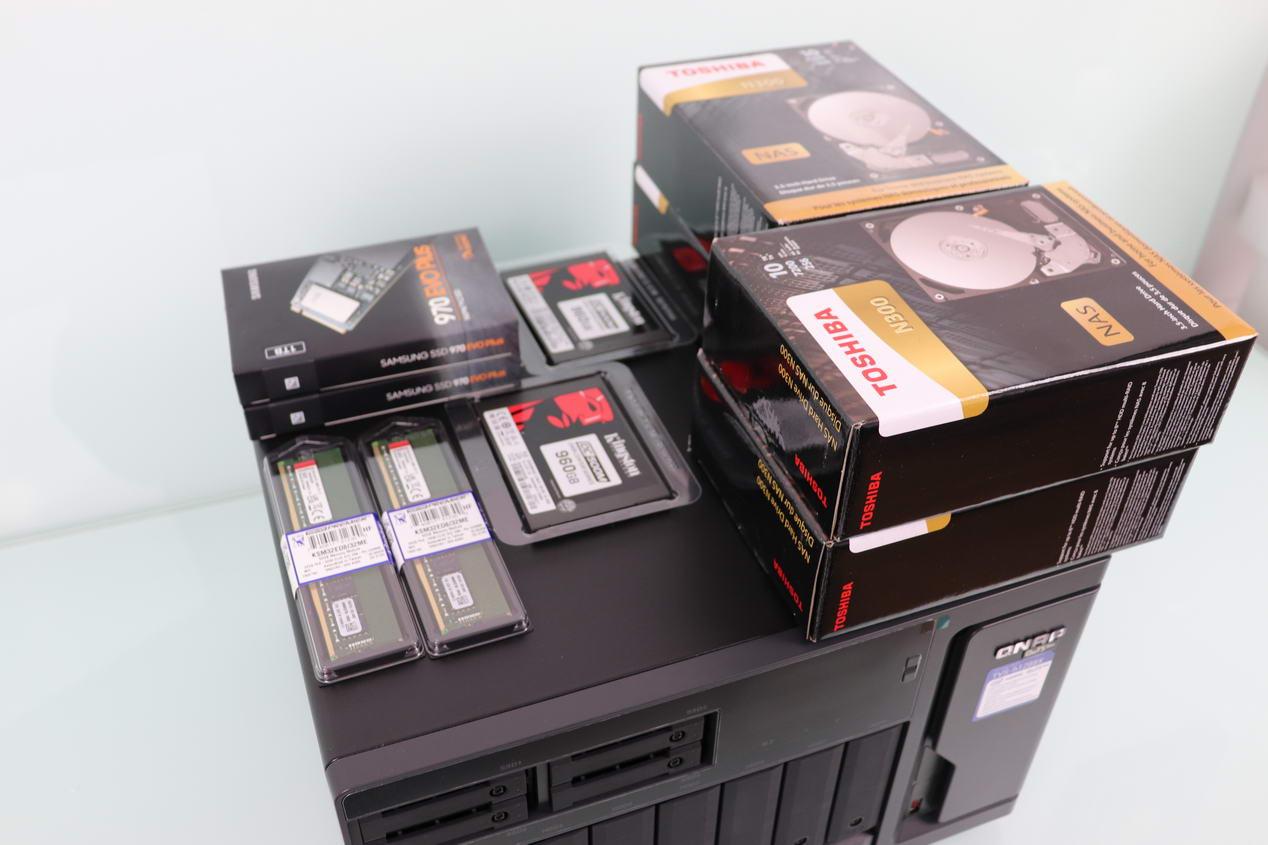
If you have a NAS server or are thinking of buying one, you should know that there are hard drives specifically designed for this purpose, both for home NAS servers and for more advanced equipment. Having good hard drives in the server is essential to have good reading and writing performance, and above all, to have reliability. There are models aimed at NAS They are designed to write more data and with greater durability, since they are disks designed to be always in operation. Today we are going to explain the main differences between a hard drive for NAS and for PC.
Differences between hard drive for NAS and normal
The hard drives that we can buy for a desktop computer are not the same as the HDDs specifically oriented for NAS servers. There are certain critical features in a hard drive that we should look at before buying it:
- Ability
- Data Transfer Rate
- Cache
- Rotational speed (RPM)
- Disc recording technology
- Reliability with mean time between failures
We are going to give a very clear example with two hard drives from the same manufacturer, but aimed at different uses: Seagate Barracuda Compute and Seagate IronWolf (the normal ones, not the Pro ones).
Seagate Barracuda Compute:
- Ability: up to 5TB maximum.
- Data Transfer Rate: up to 140MB/s.
- Cache: 128MB
- Rotational speed (RPM): 5,400
- Disc recording technology: SMR
- Reliability with mean time between failures: does not indicate.
Seagate Iron Wolf:
- Ability: Up to 12TB maximum.
- Data Transfer Rate: up to 210MB/s.
- Cache: 256MB
- Rotational speed (RPM): 7,200
- Disc recording technology: WRC
- Reliability with mean time between failures: 1 million hours.
As you can see, the differences between a “normal” hard drive and one oriented to NAS is very different, especially if our equipment has several bays, since the latter will withstand the vibrations of the rest of the drives without problems, while the former will It will shorten its lifespan because of this. If we compare it with the Seagate IronWolf Pro, we can see even more difference:
Seagate Iron Wolf Pro:
- Ability: up to 20TB maximum.
- Data Transfer Rate: up to 285MB/s.
- Cache: 256MB
- Rotational speed (RPM): 7,200
- Disc recording technology: WRC
- Reliability with mean time between failures: 2.5 million hours.
As you can see, the “Pro” version is an improved version of the IronWolf that is intended to be used on servers with more than 8 bays, however, they can also be used on servers with 4 or 6 bays without any problem. We will have better performance and greater reliability so as not to have data loss problems.
Recommended NAS HDD Models
The main brands of hard drives such as Seagate, WD or Toshiba have models specifically designed for computers, for home and professional NAS servers, as well as for more advanced servers that are oriented towards data centers. Depending on our use, we will have to use one type of hard drive or another, since it is essential that it is specifically designed for this purpose.
In the case of Seagate, we have the IronWolf and the IronWolf Pro. The former are designed for home NAS or small and medium-sized businesses, which have equipment with up to 8 hard drive bays maximum. These hard drives are designed for a workload of up to 180TB/year, and have a mean time between failure of 1 million hours.
In the case of the IronWolf Pro, they are designed for servers of medium and large companies that have equipment with more than 8 bays for hard drives, they are designed to support a workload of up to 550TB/year and a mean time between failures of 2 .5 million hours.
In the case of the WD brand, we have the Red Plus range and the Red Pro range, which are equivalent to the IronWolf and IronWolf Pro. The main difference between the two is the number of maximum recommended bays
The Toshiba brand also has hard drives designed specifically for NAS, they are the N300 range.
Finally, brands like Seagate and WD have business hard drives, specifically the EXOS and the Gold respectively. However, these hard drives do not have NAS diagnostic tools like older models of these brands do.
As you can see, it is very important to choose the hard drive that we use in our equipment correctly, in order to have the highest possible reliability.